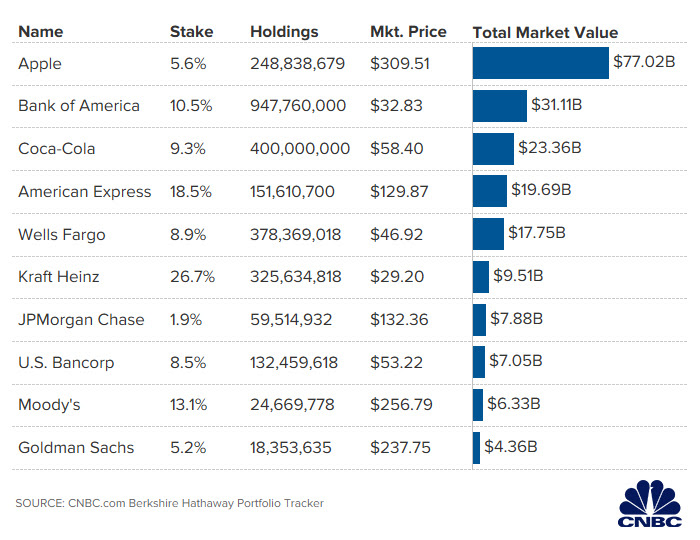Canadian Automotive Leaders Urge Bold Response To Trump Administration

Table of Contents
The Canadian automotive industry, a cornerstone of the Canadian economy, is facing unprecedented challenges due to the protectionist trade policies enacted by the Trump administration. This has led Canadian automotive leaders to issue urgent calls for a bold and decisive response to safeguard Canadian jobs, protect the sector's future competitiveness, and mitigate the significant economic impact of these policies. This article delves into the challenges, the industry's response, and the crucial strategies needed to navigate this turbulent period.
<h2>Economic Impact of Trump Administration Policies on the Canadian Automotive Sector</h2>
The Trump administration's trade policies, including tariffs and trade restrictions, have had a demonstrably negative economic impact on the Canadian automotive sector. This impact reverberates throughout the entire automotive supply chain, affecting not only major automakers but also numerous smaller supporting businesses.
-
Job Losses and Investment Slowdown: Tariffs imposed on Canadian automotive parts and vehicles have led to reduced competitiveness in the US market, resulting in decreased production and, consequently, job losses in Canadian automotive plants. The threat of further tariffs has also chilled investment in new facilities and technologies.
-
Supply Chain Disruptions: The intricate North American automotive supply chain, deeply integrated across borders, has been significantly disrupted. Delays and increased costs associated with navigating tariffs and border complexities have negatively impacted production schedules and profitability.
-
Quantifiable Financial Impact: While precise figures are difficult to definitively isolate, various reports suggest billions of dollars in lost revenue and investment for Canadian automakers. The impact extends beyond the automotive sector, affecting related industries such as steel, aluminum, and logistics. Specific examples include delayed expansion plans by several major auto manufacturers and reduced hiring in component manufacturing facilities.
-
Trade Deficit Widening: The trade imbalance between Canada and the United States has been exacerbated by these protectionist measures, further jeopardizing the long-term health of the Canadian automotive industry.
<h2>The Urgent Call for a Coordinated Canadian Response</h2>
Facing these challenges, Canadian automotive leaders, including CEOs of major automakers and union representatives, have united in demanding a forceful and comprehensive response from the Canadian government. Their calls reflect a growing sense of urgency to protect the industry's future viability.
-
Key Demands and Recommendations: These leaders are advocating for a multi-pronged approach that includes robust trade negotiations, targeted government support for affected businesses, and investment in innovative technologies to ensure long-term competitiveness.
-
Industry Collaboration: The Canadian automotive industry is demonstrating remarkable collaboration in navigating this crisis. Industry associations are working closely with the government to develop effective strategies and present a unified front.
-
Lobbying Efforts: Intensive lobbying efforts are underway, targeting both the Canadian government and international organizations to secure favorable trade agreements and mitigate the negative impact of US protectionism. These efforts include direct engagement with policymakers and participation in international trade forums.
-
Effectiveness of Response Strategies: The success of these strategies depends heavily on the government's willingness to implement proactive policies and engage in robust international negotiations. A coordinated and decisive response is crucial to achieving the desired outcome.
<h3>Strengthening Canada-US Automotive Trade Relations</h3>
The replacement of NAFTA with the USMCA (United States-Mexico-Canada Agreement) offered some degree of stability, but the underlying tension remains. Strengthening Canada-US automotive trade relations requires a multifaceted approach:
-
USMCA Implementation and Enforcement: Effective implementation and enforcement of the USMCA are paramount. This requires vigilance in addressing any potential breaches and ensuring a fair and equitable trading environment.
-
Bilateral Agreements and Trade Diversification: Canada needs to explore and strengthen bilateral agreements with other countries to diversify its trade partnerships and reduce reliance on the US market.
-
International Partnerships: Collaboration with international organizations and like-minded countries can provide leverage in addressing trade disputes and promoting fair trade practices.
<h2>Long-Term Strategies for the Canadian Automotive Industry</h2>
To ensure the long-term prosperity of the Canadian automotive industry, strategic investments and forward-looking policies are essential:
-
Innovation and Technological Advancement: Investing heavily in research and development, particularly in electric vehicles, autonomous driving, and other advanced technologies, is critical for maintaining competitiveness.
-
Attracting Foreign Investment: Creating an attractive investment climate through streamlined regulations, tax incentives, and skilled workforce development is vital to attracting foreign investment.
-
Workforce Development: Investing in education and training programs that equip workers with the skills needed for the evolving automotive landscape is crucial.
-
Government Incentives and Support: Targeted government incentives and support programs can play a vital role in stimulating innovation, attracting investment, and fostering the growth of the Canadian automotive sector.
<h2>Conclusion</h2>
The Canadian automotive industry faces significant headwinds due to the Trump administration's protectionist policies. The urgent calls from Canadian automotive leaders highlight the severity of the situation and underscore the need for a bold response. This response must include proactive trade negotiations, strong government support, and strategic investments in innovation and workforce development. The Canadian government must act decisively to address the economic impact of Trump administration policies on the Canadian automotive sector and to strengthen Canada-US automotive trade relations. Failure to do so risks jeopardizing the future of this vital sector of the Canadian economy. A proactive and strategic approach is not merely desirable; it's essential for the continued success of the Canadian automotive industry.

Featured Posts
-
 When Is Memorial Day 2025 Your Guide To The May Holiday Weekend
May 24, 2025
When Is Memorial Day 2025 Your Guide To The May Holiday Weekend
May 24, 2025 -
 The Future Of Berkshire Hathaways Apple Holdings A Post Buffett Analysis
May 24, 2025
The Future Of Berkshire Hathaways Apple Holdings A Post Buffett Analysis
May 24, 2025 -
 Massovye Svadebnye Torzhestva Na Kharkovschine 40 Par Skazali Da
May 24, 2025
Massovye Svadebnye Torzhestva Na Kharkovschine 40 Par Skazali Da
May 24, 2025 -
 The Lingering Hope Waiting For A Call That May Never Come
May 24, 2025
The Lingering Hope Waiting For A Call That May Never Come
May 24, 2025 -
 Generating A Poop Podcast How Ai Processes Repetitive Scatological Documents
May 24, 2025
Generating A Poop Podcast How Ai Processes Repetitive Scatological Documents
May 24, 2025
Latest Posts
-
 Jonathan Groffs Just In Time A Night Of Support From Lea Michele And Fellow Stars
May 24, 2025
Jonathan Groffs Just In Time A Night Of Support From Lea Michele And Fellow Stars
May 24, 2025 -
 Etoile Gideon Glick Et Jonathan Groff Reunis Dans Une Scene Hilarante De Spring Awakening
May 24, 2025
Etoile Gideon Glick Et Jonathan Groff Reunis Dans Une Scene Hilarante De Spring Awakening
May 24, 2025 -
 Joe Jonas And The Married Couples Unexpected Argument
May 24, 2025
Joe Jonas And The Married Couples Unexpected Argument
May 24, 2025 -
 Broadways Best Jonathan Groffs Opening Night Supported By Famous Friends
May 24, 2025
Broadways Best Jonathan Groffs Opening Night Supported By Famous Friends
May 24, 2025 -
 Jonathan Groffs Just In Time Photos From The Star Studded Broadway Premiere
May 24, 2025
Jonathan Groffs Just In Time Photos From The Star Studded Broadway Premiere
May 24, 2025
